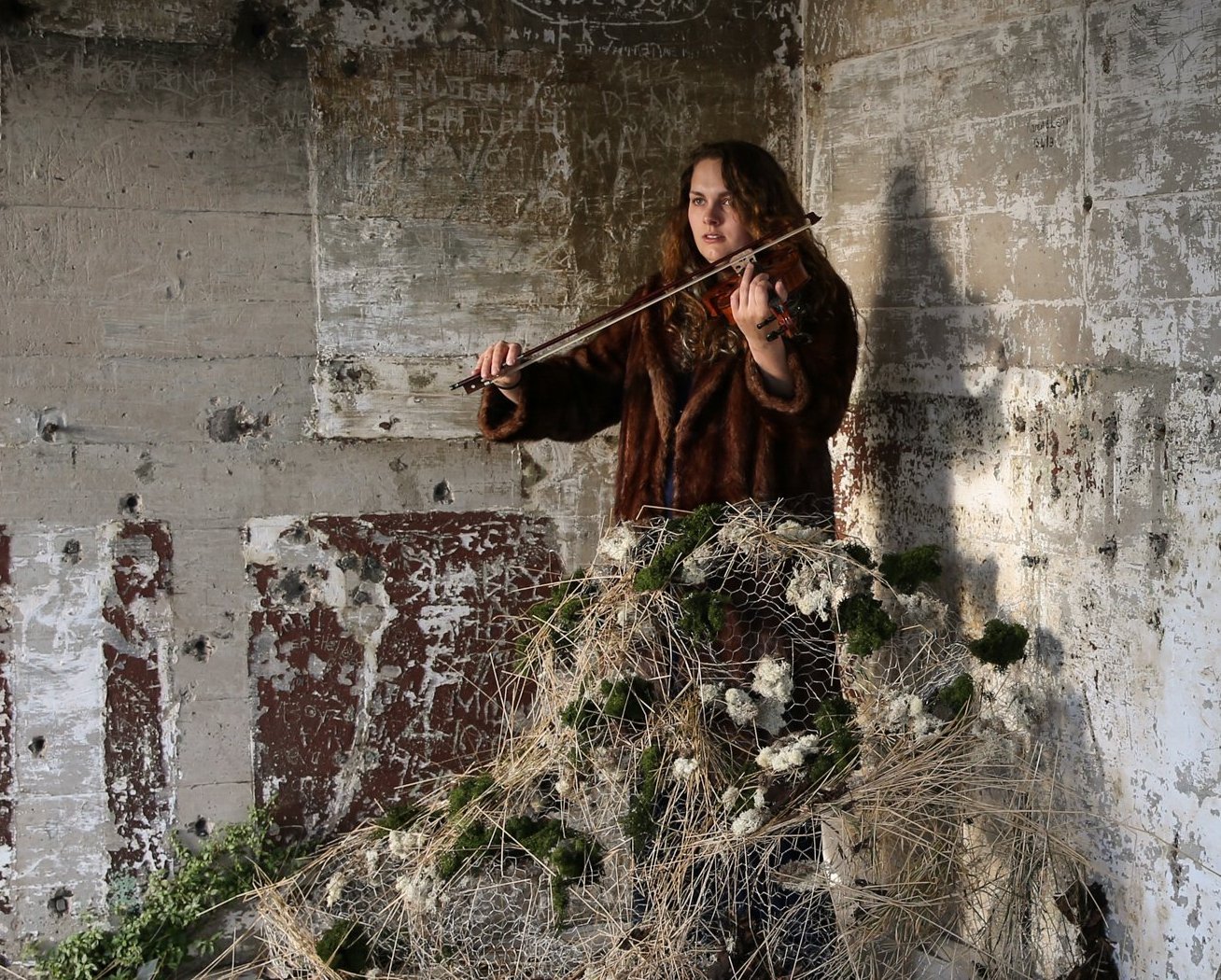
Mona Bozdog's Inchcolm project
Photo: Erika Stevenson
Connecting with industry
A consortium of Scotland’s universities and art schools place researchers within arts and cultural organisations. Anna Scott discusses the benefits to all involved.
The Scottish Graduate School for Arts & Humanities (SGSAH) was established in 2014 and represents a consortium of 16 Scottish universities, including four art schools and the Royal Conservatoire of Scotland. We provide funding and career-focussed training for PhD researchers working across disciplines from history and philosophy through to cultural policy, drama and theatre studies and the full range of practice-based arts.
Since 2014, we have offered over 1,600 training places and engaged more than 130 creative, cultural and heritage organisations through our programmes. We work with partners to identify, develop and support training and placements for all arts and humanities PhD students across Scotland.
Doctoral students do not replace project managers, marketers or fundraisers but bring a fresh set of skills to the table that can open up new ways of thinking
Deirdre Heddon, Dean of SGSAH, said: “Our partnerships highlight the close links between arts and humanities research and our arts, culture and heritage sectors and demonstrate the vitality and variety of that research in Scotland. We support the development of highly skilled doctoral researchers who have the knowledge, experience and networks to make a difference in the world.”
Internships and residencies
We advance our researchers’ abilities in part through our doctoral internships and artists-in- residence programme. The ‘scheme year’ provides students with the opportunity to work with external organisations and use their knowledge in a different setting, to develop networks and relationships outside academia – and to get paid for it.
The benefits work both ways as cultural organisations are able to access high-level research skills along with new ideas, insights and perspectives. Organisations participating in this year’s programme range from small performing arts festivals like Buzzcut in Glasgow to Scotland’s largest membership organisation, the National Trust for Scotland.
Funded studentships
Thanks to funding from the Scottish Government through the Scottish Funding Council, we are also able to offer partners access to funded studentships. Applied Research Collaborative Studentships are three-year PhD programmes developed with two higher education institutions and an external organisation and so far we have funded 13 projects.
Mona Bozdog is one recipient. Her research, a partnership between SGSAH, Abertay University, the Royal Conservatoire of Scotland and the National Theatre of Scotland (NTS), looks at using transmedia storytelling to make connections between theatre and video games.
Mona said: “For a research student undertaking an applied PhD, mentorship is vital. I have been privileged in having NTS as my non-academic partner. I have had the opportunity to observe the artistic processes in rehearsals, discuss processes and methods with theatre practitioners and think about the ways in which I could incorporate these into my own practice.”
Preparing for a career
PhD researchers in arts and humanities come from a diverse academic background and head into a variety of careers. According to figures from Vitae, over half of doctoral graduates in arts and humanities work outside the higher education sector three and a half years after graduation, in jobs including arts administration, museum collections management, writing, editing and policy guidance.
Identifying the skills and attributes that people need now and in the future is vital to our approach to developing and delivering collaborative career-facing training. Whether our graduates continue in academia or choose another path, what we can offer is the opportunity to start conversations with the people and organisations they are most likely going to have relationships with when they graduate.
We are always looking for new ideas, partners and contributions to our work. Partners can participate in training programmes to inspire and prepare doctoral researchers for creative careers, for instance via our Creative Enlightenment programme, which focuses on entrepreneurship in the context of being self-employed or starting a social enterprise.
SGSAH offers a single point of entry for organisations that want to connect with world-leading research and support knowledge exchange through Scotland’s higher education institutions. We are keen to encourage organisations to think about what engaging with arts and humanities research might contribute to their work and what they might offer in return.
Fresh set of skills
Doctoral students do not replace project managers, marketers or fundraisers but bring a fresh set of skills to the table that can open up new ways of thinking, while still focussing on questions and issues that matter to you.
Simon Sharkey, Associate Director, National Theatre of Scotland, said: “An academic interrogation of the aesthetics and choices that we make are a great resource to allow us a focus beyond that of catering for our audiences. Working with SGSAH and having that critical eye has allowed us to have a discourse that may not otherwise have been afforded.”
Anna Scott is Knowledge Exchange and Partnerships Manager at Scottish Graduate School for Arts & Humanities.
www.sgsah.ac.uk
Tw: @SGSAH_
SGSAH is funded by the Scottish Funding Council & the Arts & Humanities Research Council, as well as its 16 member higher education institutions.
Join the Discussion
You must be logged in to post a comment.